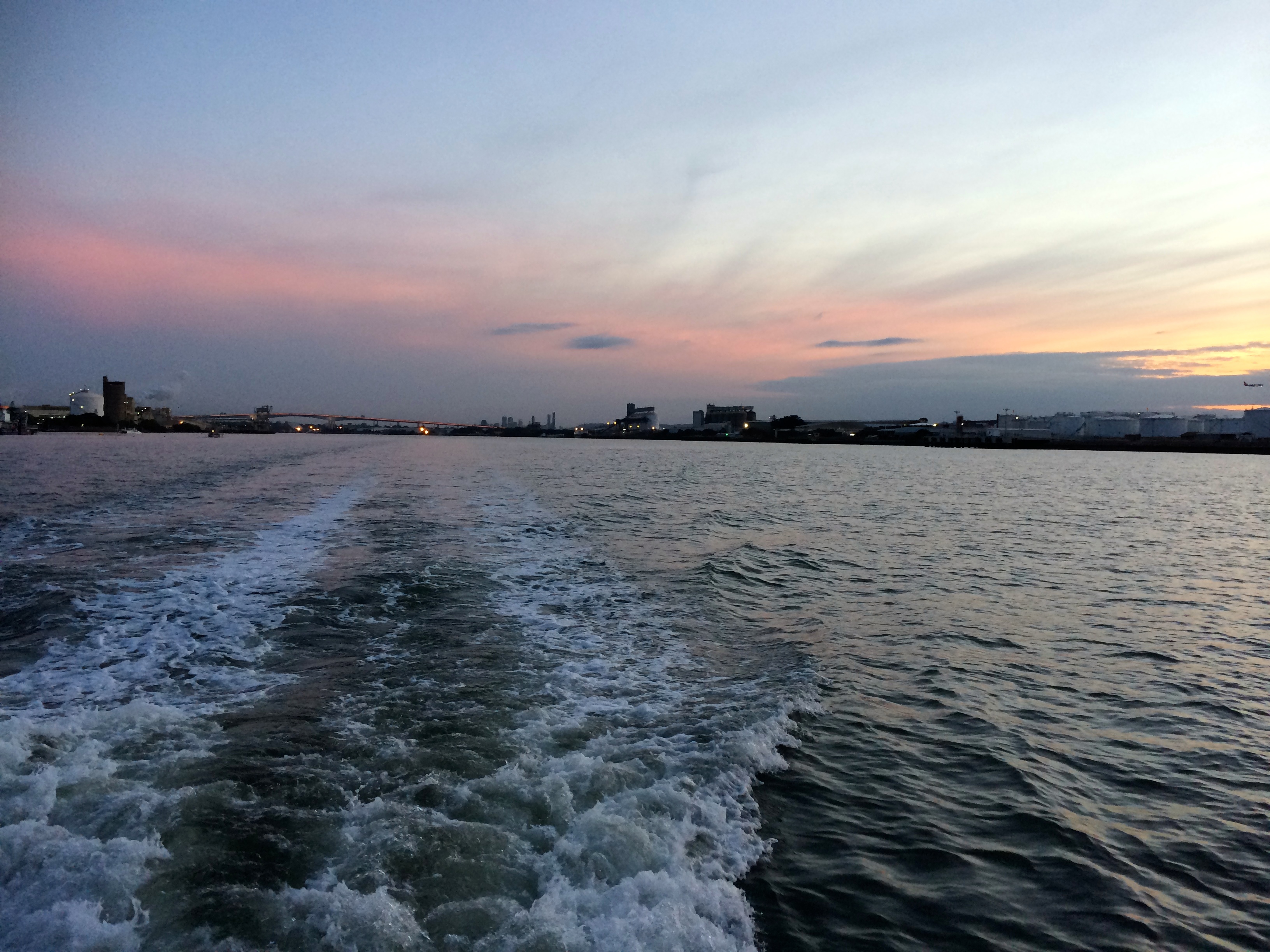”Do not hurry; do not rest.” Goethe
I’m standing on the shores of Moreton Bay Island (Quandamooka) looking at Brisbane lights across the bay. That city still does not pull me. Does not feel like home. It’s a strange experience to stand on an island and look back and see the mainland and feel it’s not my place.
For all my trying to belong here — and I’m a third of the way into my year-long experiment — I’m not sure how much progress I’m making. I’m an optimistic person who makes my own path but I can’t help feeling a bit like a dolphin in captivity.
Tangalooma, on Moreton Bay Island, has a wild dolphin feeding program for a pod of inshore bottlenose dolphins. We hand-fed fish to Tinkerbell and met her calf Luna. Despite the line-up of people, seeing a wild dolphin so close gave me a sense of connecting with nature.
At the Marine Education and Conservation Centre I learn that dolphins in captivity can get depressed and they can — because every breath they take is a conscious effort — commit suicide. While there is some controversy around this theory, the trainer of Cathy, one of the dolphins who played Flipper in the 1960s TV show, believes that Cathy committed suicide, taking one last breath while he held her in his arms.
Now before you think I’ve gone overboard let me point out I’m not depressed, just curious and my curiosity is raising uncomfortable questions. But I’m getting ahead of myself. Let me tell you about the whales.
There are old whaling stations along the eastern coast of Australia. One of those is on Moreton Bay Island. From 1952 to 1962, more than 6000 whales from the area were killed. It’s part of Australia’s dark past. Australians weren’t alone though, the Russians, Japanese and others were responsible for cutting the whale population in that area to 500.
The good news is that the whale population is now growing by about 10 percent a year. That means the whale migration is starting a little earlier in June and ending later in October. The Marine Education Centre is expecting about 18,000 whales to pass by Moreton Island this year on their way north from the Antarctic.
All this talk about dolphins and whales has me thinking about environment and about how much the environment we live in and the people around us shape and change our behaviour. You would think a Canadian would feel at home here in Australia but it isn’t that simple, at least not for me.
In general, people here are polite on the surface but that’s where most relationships seem to stay. On the surface. It seems to take a lot longer for Australians to welcome you into their homes than other places I’ve lived in. This is something I’ve heard from several immigrants here. One man lived in Sydney for years before he was invited over to anyone else’s house for a barbeque.
As for me, I sense invisible walls everywhere. I sense judgement. I feel like I’m not supposed to do anything to stand out.Deep down, is this a nation of conservative people? Could this be the reason I don’t feel free to be myself here? Shouldn’t I have felt more restricted in Paris, the city of rules? Yet, in some ways I felt I could be more flamboyant, more myself in other places. Yes, even in London, England.
It’s the unwritten rules that are the most difficult to figure out and I suspect Australia has quite a few.
For example, take Tall Poppy Syndrome: people love to criticize those who are successful or just different. (Of course this doesn’t apply to sports people here. They seem to be — for the most part — exempt.) Yes, this is a generalization, but I’d never heard of Tall Poppy Syndrome until I came to Australia, where I hear it mentioned almost daily.
The constant referral to Tall Poppy Syndrome suggests people aren’t supposed to stand out. That difference is shunned. That there is an underlying current of conformity. Yes, we can argue that exists in every culture, but the constraining element is how much leeway is there around that conformity?
Are we all dolphins in captivity bound by unwritten rules?


